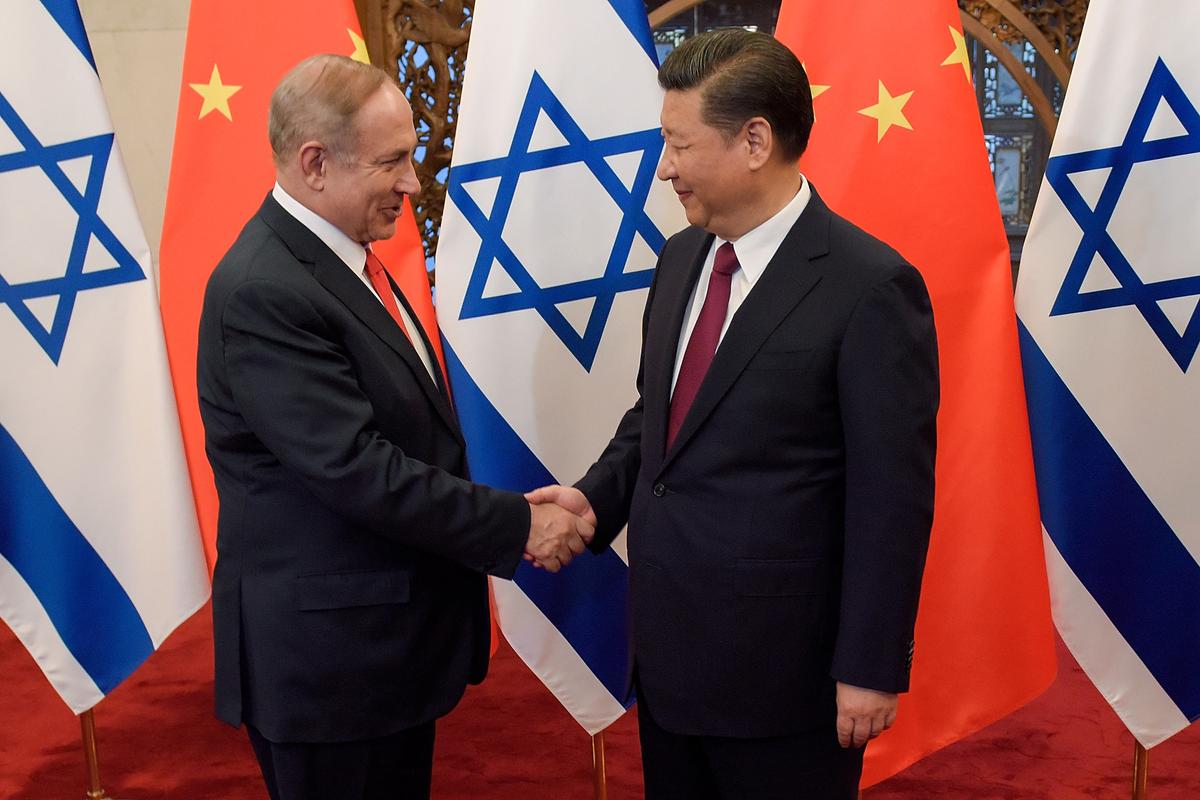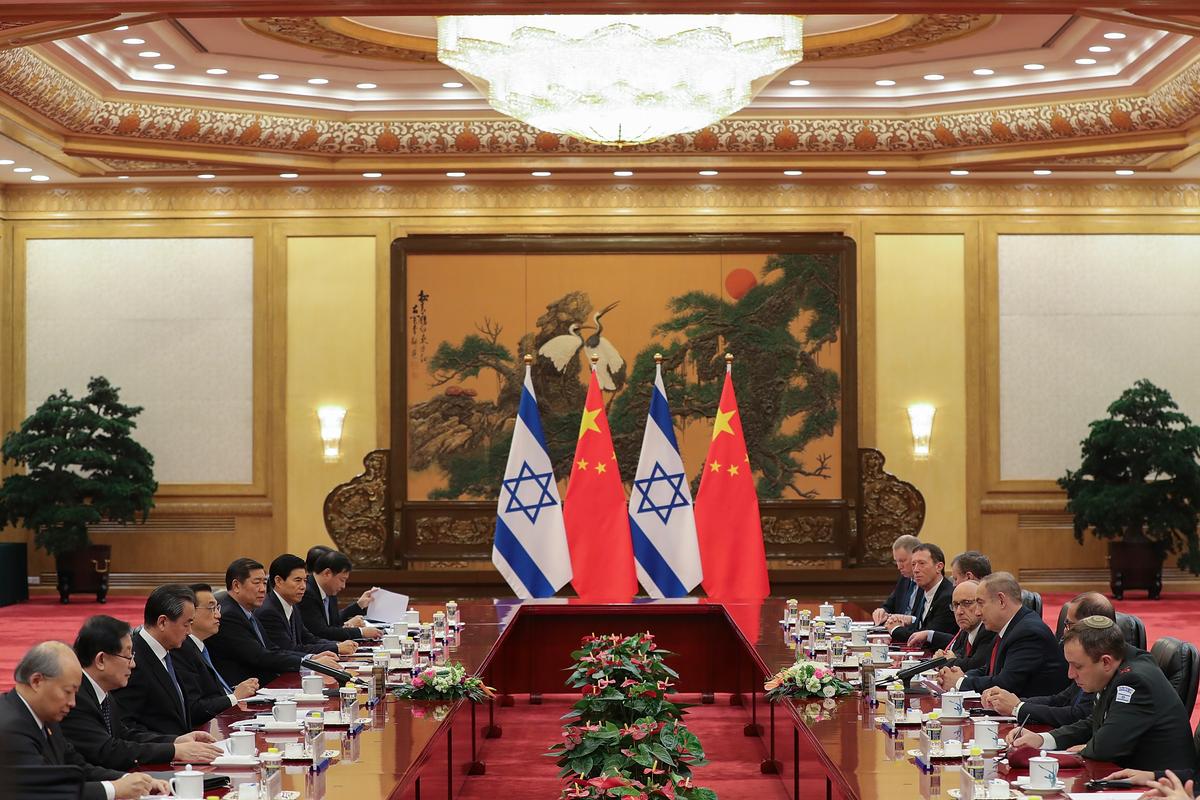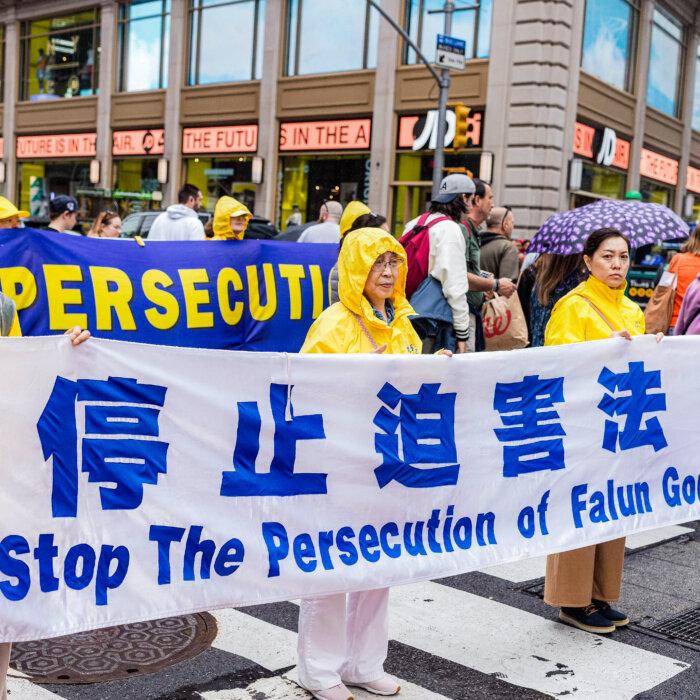For decades, Israel and the Chinese Communist Party (CCP) have maintained an exceedingly close relationship, with Israel providing a significant amount of advanced technology across various sectors, including the military. Throughout this period, Israel remained silent on the CCP’s human rights violations and acts of genocide against Chinese people. However, the dynamics of this relationship have drastically changed following the conflict between Israel and Hamas.
On Jan. 23, the CCP’s human rights record was subject to oversight and review by the United Nations Human Rights Council, where Beijing’s atrocious human rights record was criticized by Western countries.
The United States called on the CCP to release all individuals arbitrarily detained and stop implementing forced assimilation policies against ethnic minorities.
In a notable departure from its usual stance, Israel joined the chorus of criticism at the council meeting. An Israeli representative voiced concern over the conditions in Xinjiang and the treatment of the Uyghur people, urging the CCP to improve the human rights situation, tackle social discrimination, and fight violence against women and children more effectively.
In response, Xinhua, the CCP’s official mouthpiece, launched a retort against Israel, dismissing the human rights allegations as baseless and politically motivated. The publication then counter-accused Israel of employing double standards in human rights matters and blamed it for civilian casualties in Gaza and the creation of humanitarian crises.
Israel’s Extensive Military Technology Contributions to the CCP
For many years, the partnership between Israel and China has been notably strong, particularly in the realm of technological exchange. This relationship has been especially significant in the military sector, where Israel has provided considerable support to the CCP.A prominent military blogger on China’s Sohu website referred to Israel as the CCP’s “mentor” in drone technology in an article last October.
Furthermore, the origins of the CCP’s air-to-air missiles can also be traced back to Israeli technology.
Following Israel’s unexpected strike on Syrian missile sites in Lebanon’s Bekaa Valley in 1982, its Python-3 missile garnered international acclaim. In the subsequent year, Israel supplied the CCP with the Python-3 missile and its complete technology.
The introduction of the Python-3 notably enhanced the CCP’s air defense capabilities. The missile was later adapted by the CCP and renamed “PL-8,” becoming its first advanced air-to-air missile, which a report on China’s Sina website hailed as “a gift from Israel.”
Another pivotal contribution was the “J-10” fighter jet, marking a significant milestone for the CCP.
In the 1980s, Israel embarked on the IAI Lavi fighter jet project, developing a jet comparable to the American F-16 with assistance from U.S. companies. However, due to its potential competition with American jets, the project was discontinued in 1987.
Surprisingly, in the 1990s, the CCP obtained military secrets regarding the Lavi from Israel, leading to the production of the J-10, a jet strikingly similar to the Lavi. U.S. military analysts have noted that the J-10 incorporates extensive technological insights from the Lavi project.
In 2014, the U.S.-China Economic and Security Review Commission identified Israel as a significant provider of sophisticated military technology to China. This included supplying China’s navy with various advanced systems such as target interception and fire control equipment, cruise missiles, radar systems, airborne radars, optical and telecommunications equipment, drones and flight simulators, and tank thermal imaging systems.
Israel also assisted Beijing in the development of surface-to-air missiles, underlining the profound impact of Israeli-CCP cooperation on China’s military advancements.

Cooperation Beyond Military Engagement
The collaboration between China and Israel extends far beyond the military domain, encompassing a wide range of sectors.Despite not officially joining the “Belt and Road” initiative, Israel has had a notable presence in Chinese “Belt and Road” projects. Major Israeli strategic ports, including Ashdod and the newly developed Haifa Port, have seen participation from Chinese state-owned enterprises.
The Shanghai International Port Group secured a 25-year concession to operate the new terminal at Haifa Port, a site frequently visited by the U.S. Navy’s Sixth Fleet, which has raised concerns from the United States.
In agriculture, a sector where Israel is particularly advanced, the country has shared its pioneering irrigation and seed cultivation technologies with China. This includes precision drip irrigation, dairy cow management, glass temperature control, and precision fertilization technologies.
In 2016, Israel’s Netafim company established a factory in Yinchuan, China, a region plagued by drought and water scarcity, bringing in technology that significantly boosted local crop yields.
Israel’s contributions to civilian life in China are also noteworthy. It has introduced cutting-edge seawater desalination technology to help address China’s water scarcity challenges. The largest desalination plant in Tianjin, developed with Israel’s AST water treatment company, utilizes advanced reverse osmosis technology for various applications.
In the health care sector, Israel has provided substantial support to China, including medical equipment, pharmaceuticals, technology, and training. Following the outbreak of COVID-19 in 2020, Israeli innovations, such as medical robots, remote medical consultations, and multifunctional epidemic prevention technologies, were introduced to China.
Despite its modest size of 25,000 square kilometers and a population of 9.73 million, Israel’s technological and innovative capacities are recognized globally.
Amid pressure from the United States, Israel’s collaboration with China continues, even receiving accolades from Chinese official media. In a notable article, Xinhua lauded the “sincere and mutually beneficial” innovation cooperation between the two countries, highlighting Israel’s technological prowess and China’s vast market as complementary strengths.
Mr. Zhang, a former trade manager in a Beijing firm who now resides in New York, shared with The Epoch Times a personal anecdote of Israel’s potential involvement in advancing China’s surveillance capabilities.
“I was working for a foreign company in Beijing. After the persecution of Falun Gong began [in 1999], my company was negotiating with an Israeli company for the agency rights of telephone eavesdropping equipment, which ultimately fell through for some reason.
Historical Roots of Jewish Affection for China
The warmth between Israel and China is deeply rooted in history, driven by the Jewish community’s enduring gratitude toward the Chinese people for their support during one of history’s darkest periods.Shanghai, at the time, emerged as a pivotal refuge, uniquely not requiring visas, financial guarantees, or work permits for entry, thus becoming a vital sanctuary for Jewish refugees. The city, alongside others like Tianjin, Harbin, Qingdao, Weihai, Kunming, Chengdu, Dalian, and Hong Kong, welcomed Jewish communities, allowing them to survive the war years.
This profound sense of gratitude among Jewish people contributed to Israel’s early recognition of the People’s Republic of China, established by the Chinese Communist Party (CCP) on Oct. 1, 1949, despite it being an entirely different government. Israel was among the first countries to recognize it in January 1950, well ahead of many Western nations.
The establishment of ambassadorial-level diplomatic relations between China and Israel in 1992 marked a significant milestone, delayed not by Israel’s hesitancy but by the CCP’s diplomatic considerations with Arab countries, due to Israel’s geopolitical position. Even before formal diplomatic ties, Israel had provided advanced weaponry to the CCP.

Shift in Relations Post Israel-Hamas Conflict
The relationship between China and Israel, once marked by decades of cooperation, faced a significant turning point following an unprecedented terrorist attack by Hamas on Israel on Oct. 7 last year. The attack resulted in thousands of deaths and the taking of over two hundred hostages.Throughout this crisis, China’s response was notably reserved, opting not to condemn Hamas but instead urging all parties, including Israel, to “exercise restraint” and to “cease fire immediately.”
This period saw a noticeable increase in media coverage within China that appeared biased towards Hamas, alongside a surge in anti-Semitic sentiment across Chinese state-owned social media platforms. Hu Xijin, former editor-in-chief of the Global Times, questioned on social media why China, as a major country, should “flatter a small Israel,” suggesting that Israel would not dare to offend China.
Why would the CCP abandon a friend it has engaged with for decades in favor of supporting a radical organization known for committing acts of terror? This pivot prompts inquiries into the CCP’s underlying intentions, hinting at a possible strategic shift influenced by global geopolitical currents, especially in how the CCP positions itself against the free world, led by the United States.
Li Yuanhua, a Chinese historian currently based in Australia and former associate professor at Beijing’s Capital Normal University, posits that the CCP’s engagement or disengagement with Israel is purely driven by self-interest. Historically, the CCP valued its relationship with Israel due to the latter’s advanced technology. However, with the free world, particularly the United States, seen as its principal adversary, the CCP’s strategy shifted following the Israel-Hamas conflict. The CCP perceived a prolonged conflict as beneficial, distracting the U.S. and diverting its resources.
“The CCP prioritizes interests above all, willing to exploit relationships without adherence to principles of righteousness or credibility. The stance of neutrality claimed by the CCP, alongside its covert support for Hamas, has significantly tarnished its image among the Israeli public, revealing the CCP’s true nature,” Mr. Li said.
Furthermore, the state-controlled Chinese media’s narrative, often at odds with public sentiment, has contributed to a misunderstanding among Israelis regarding the Chinese people’s views. Mr. Li emphasizes that a discerning understanding of the CCP is crucial, “distinguishing the party’s actions from the will of the Chinese people.”








